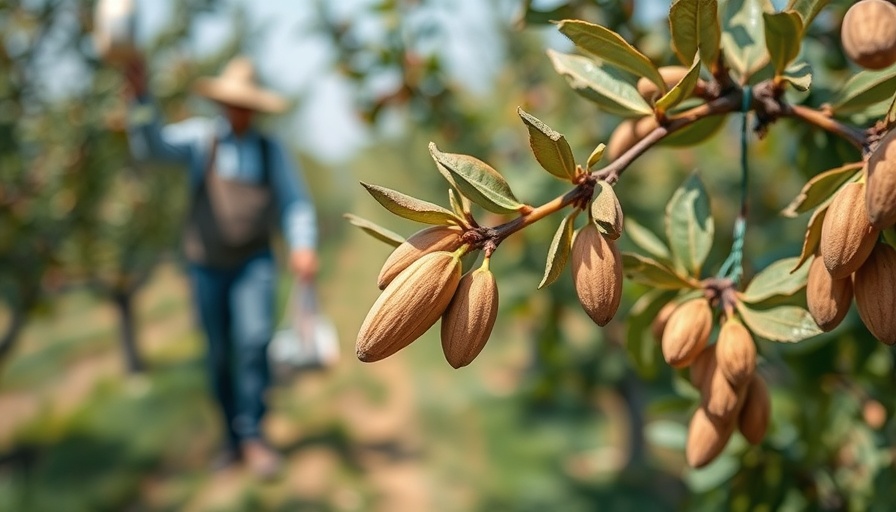
Climate Change and Your Kitchen: A Rising Concern
Climate change isn’t a distant worry anymore; it’s affecting our grocery bills right now, especially in 2025. From beans to berries, many of our staple foods are becoming harder to find and more expensive, all thanks to shifting weather patterns and agricultural practices that are no longer sustainable. This situation presents serious environmental justice issues, particularly concerning the world's poorest regions, which produce less than 5% of the total emissions compared to wealthier nations but face the brunt of climate change impacts.
Understanding the Impact on Our Favorite Foods
Consider the warm embrace of your morning coffee or the sweet satisfaction of a chocolate treat—both are under siege due to climate change. Researchers predict that a rise in global temperatures could lead to a drastic drop in food production, affecting everyone, rich and poor alike.
Coffee: A Caffeinated Crisis
In recent years, Brazil, the world’s largest coffee producer, has seen devastating declines in its coffee yields because of escalating temperatures and prolonged droughts. Studies predict that the area suitable for growing Arabica coffee may halve by 2050, leading to skyrocketing prices. In 2024 alone, the wholesale price of Arabica soared 80%, forcing many of us to reconsider our daily habits.
Chocolate: Bitter Transformations Ahead
The beloved cocoa plant, primarily grown in Ivory Coast and Ghana, is also feeling the heat. Climate-induced droughts are crippling cocoa crop viability, and as global stocks drop to decade lows, chocolate lovers are facing price increases upwards of 30% for their favorite treats. Innovations like cocoa-free alternatives are emerging, hinting at a future where our indulgences may no longer be familiar.
Corn (Maize): The Heart of Our Diet
Corn is crucial, particularly in the U.S., where it ranks as the second-largest grower after China. Yet, forecast models show potential declines in yields by 24% as soon as 2030 due to high greenhouse gas emissions. This could spell trouble not just for farmers but for household budgets worldwide, as corn is a key ingredient in many foods.
Future Predictions: What Lies Ahead for Our Foods
The threat to our food security is multi-faceted and complex. If temperatures continue to rise, we can expect a broader range of crops, including soybeans and wheat, to face yield reductions. Those already experiencing food accessibility issues will only find it increasingly challenging to secure basic dietary needs.
Actionable Insights for Consumers
The situation might seem dire, but several proactive steps can help mitigate the impacts of climate change on food supply. For starters, consider growing your own vegetables or herbs. Urban gardening techniques can be practical, even in small spaces, allowing you to reduce your carbon footprint and increase your self-sufficiency.
Embrace Sustainable Living
Integrating sustainable practices into your daily life can help combat climate change and its effects on food production. Simple actions, such as composting food scraps, engaging in recycling programs for waste management, or exploring local farmers' markets, can create a meaningful impact. Opt for biodegradable products and seek to reduce plastic use wherever possible.
The Role of Community
Sharing knowledge and resources with neighbors can amplify the benefits of sustainable living. Join community gardens, local recycling initiatives, or eco-friendly living workshops to connect with others who are passionate about environmental preservation.
Conclusion: A Call to Action
As you navigate the evolving landscape of your grocery bill and the food you consume, remember that we have the agency to facilitate change. Together, we can foster a greener and more sustainable future by making informed choices, advocating for environmental policies, and engaging in community-focused solutions. Take time to explore local resources that aid in sustainable living practices — and become a part of the solution for combatting climate change today!
 Add Row
Add Row  Add
Add 




 Add Row
Add Row  Add
Add 

Write A Comment